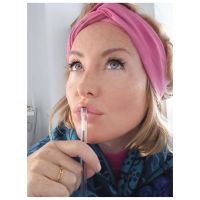How to identify a toxic relationship…
This is relatable to anyone with whom you are close, not just a relationship or partner. A friend, sibling, parent, colleague; anyone who takes up space in your life. Since we all have flaws, what is the difference between accepting someone’s flaws and facing a serious issue. Over time people can grow, adapt, self reflect and change, but there are consistent behaviours and attitudes which over time do not change which form part of the person’s personality. These are not temporary behaviours which reveal themselves over time.
- Anger – this is not occasional flair ups but a consistent presence which is used to keep control. Levels may include moodiness, non verbal cues such as facial expressions, body language and verbal and physical outbursts.
- Disparaging humour – when someone puts you down frequently in the form of humour to keep your confidence and self esteem low.
- Gaslighting – a deliberate manipulation to control the mindset of the other and to make the other doubt their own sanity. Examples include guilt, patronising, dismissive, lying and deceit.
- Controlling – the other gets angry, withdrawn, upset (any method of control) if they cannot control the other person’s behaviour or decisions. They may not take no for an answer and use violence or threats to get their own way. Can repeat the request repeatedly to wear you down.
- Insecure reassurance – when the other person requires constant validation and blames you for their own feelings of inadequacy. A person takes more than they give and will blame you for feeling exploited.
Have you ever met anyone in your life and felt I have known this person for ever? Perhaps you even told a friend…I feel like we have known eachother all our lives, then after time a crushing sense of reality begins to take over. Well if you grew up around these behaviours even questionable traits in a person can feel comfortable and familiar.
What do you do to detoxify the relationship:
- Take time apart to reflect on what bothers you and what do you miss about them?
- Take emotional distance if it’s a partner or parent, give their opinion less weight so you don’t internalise their negative opinion of you.
- Maintain your own thoughts and ideas – your thoughts don’t have to merge with your partners or parents.
- Don’t let other people’s opinions define you.
- Look at your own contribution and look to change your behaviour/role in the dyad
- Threats and ultimations are futile, set boundaries and stick to them instead.
- Pay attention to your Body. How are your energy levels or sleep? Your central nervous system will be responding to your external environment. Mental health and physical health are not separate.
If you feel confused (cognitive dissonance) and unable to make a decision, do not be afraid to ask for professional help. A lot of the reasons we end up in toxic relationships is because of our childhood and attachment styles. Co-dependant adults come from insecure anxious attachments and are magnets to the insecure avoidant narcissistic adult. This is just one example of an unhealthy coupling of people (dyad).
You are NOT always going to be the wrong one….probably the most important of red flags, if this is your life story right now please seek help from friends, family or a professional.











Read 0 comments and reply